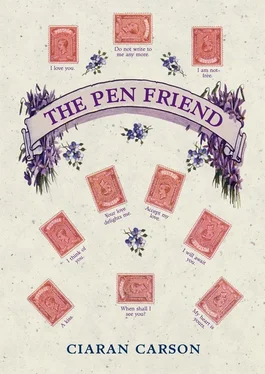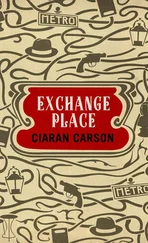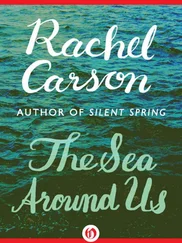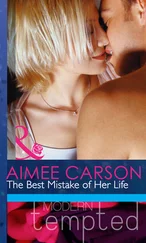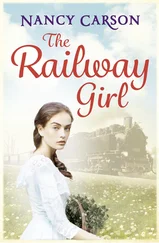The Dinkie, being a Dinkie, doesn’t hold a lot of ink, and it ran out on me two sentences ago, if questions are sentences. If you are reading this now (and I hope one day you shall) you’ll have noticed the broken flow in the writing, where the last few words petered out and I had to go over them again, like picking up a dropped stitch in a piece of knitting, except of course with knitting you’d be using the same needles, whereas I welcomed the break as an opportunity to change pens, for my hand was getting cramp from the small Dinkie.
I pondered my choice for some time. Should it be the American Wahl Eversharp Doric in Silver Grey Web, an important, legal-looking instrument, whose twelve-sided columnar design recalls the Doric porticos of American courthouses, and which one can picture in the hand of a judge, signing procedural documents, or sentences? Or another Onoto made in the year of my birth, this one with a transparent amber barrel that shows what ink remains? Or the 1939 Conway Stewart 175, which, because of its dull and unprepossessing photograph on eBay, I was able to pick up for a song, hoping that a better pen lay behind its poor image, and so it proved, as a thorough cleaning brought out the glowing splendour of its Toffee Swirl with Rose and Mauve Inclusions body, while the gold trim shone up like new? Eventually I settled on this much plainer pen, one which could not be further from the gemlike iridescence of the Dinkie I laid down for it. It’s a big black Croxley, made just after the War by the stationery manufacturers John Dickinson Ltd, and named after Croxley Mills in Watford. Here, in 1830, the original John Dickinson had set up his new ‘continuous web’ mechanised paper manufacturing process, which replaced the handmade techniques of the day. Dickinson had first made his name in the Napoleonic Wars, when he came up with a paper for cannon cartridges that did not smoulder after firing, thus preventing the many fatal premature explosions which occurred when a new charge was rammed down the barrel. Today John Dickinson plc is among the largest stationery manufacturers in the world. I wrote my notes for the Esperanto book in their Black n’ Red notebooks. And, as it happens, I’m writing this on Dickinson Croxley Script A4 paper; you can see the watermark if you hold it up to the light. But this is all by the bye, for I only discovered this information a few minutes ago, after a Google search on John Dickinson, before I began writing this with the Dickinson Croxley pen. The reason why I chose it is because engraved on its barrel are the words
MANCHESTER UNITY OF ODDFELLOWSThe best Friendly Society
and, intrigued by this inscription when I first saw it on eBay, I could not resist buying it. I got it for a few pounds: Croxleys, though they are very solidly made, with great nibs, are not deemed to be as collectable as some other English pens, and the black colour, together with the inscription, lowers the value of this one even further. The Oddfellows, as I discovered, are an organisation akin to the Freemasons, claiming like them a leading role in the French Revolution, and an ancestry stretching back to biblical times, in this instance the expulsion of the Israelites from Babylon in 587 BC. And it struck me, in the course of remembering our relationship, that perhaps the organisation you worked for was a kind of Oddfellows, once a clandestine organisation with code-names and passwords, which had evolved into one which, ostensibly at least, worked for the greater good of society.
I remember your quoting to me a saying of Talleyrand’s, La parole a été donnée à l’homme pour déguiser sa pensée , words were given to man to disguise his thoughts, and perhaps that is true, for though my writing here, as you can see, is as calm and measured as my choice of words, it would not have been so had I written to you first thing yesterday morning after seeing the Irish stamp on your card, and the Dublin postmark. Then, my hand would have trembled had I put pen to paper, for Dublin, as you know, was a turning point in our relationship, like a door that closes off one prospect and opens up another; and I did not know whether to feel pleasure or pain that you were on the same island as me. It was some hours before I could calm myself sufficiently to write. But at other times I have not so deferred the moment, I have responded immediately and honestly, you can see how my writing is wavered by excitement or emotion, the hurried scrawl of my words as they struggle to keep pace with my thought. And then again, because I sometimes do not know what to feel or think, I write slowly to discover what those thoughts or feelings might be, finding them sometimes to turn out quite differently to what I had expected, for whatever happened in the past, even the immediate past, is changed when viewed in retrospect.
We had gone to Dublin for the weekend to celebrate my promotion to Head Keeper of Irish Art at the Belfast Municipal Gallery. We’d known each other for a year. Six months before, the Assistant Keeper, Sam Catherwood, had dropped dead of a stroke; and some months after that Freddy Burrows, the Head Keeper, took early retirement. Although I was next in line, I didn’t really expect to get the job; posts like this usually went to outsiders, so I was pleasantly surprised when I was told hours after the interview that I had been successful.
We stayed at the Shelbourne Hotel. I toyed with the idea of booking Room 217, where JFK and Jacqueline had stayed in 1958 during his presidential campaign, but it proved a little beyond even the means of my new salary. As it was, I managed to get 412, the number of Lee Miller’s room in Hôtel Scribe, telling the desk not to let you know that I had asked for it in advance. So when the key was handed over, you were delighted. Great number, you said to the concierge, and you turned to me and laughed, and he smiled discreetly and said, Yes, madam, it’s a very good room, overlooks the Green, I’m sure you’ll be very comfortable there. Imagine, Angel, of all the rooms they could have given us, they give us Lee Miller’s number in Hôtel Scribe, isn’t that amazing? you said. Yes, I said, and did you know that James Joyce used to drink both in the Hôtel Scribe, and in the Shelbourne? Really? you said, and I said, Yes, really, though I didn’t know it for a fact, it was more of a likely possibility, a way of letting you know that this was my territory now.
My job often brought me to Dublin, and I knew it well, whereas you’d only been there fleetingly. We ended up that night in Mulligans pub in Poolbeg Street, where Joyce set a scene from one of his Dubliners stories, ‘Counterparts’, it’s one of those dark pubs where the light seems filtered through nicotine and settling Guinness, and the Guinness there is really very good, you remember? That paradoxical edge of bitterness behind the creamy-buttermilk-thick black. Do you know ‘Counterparts’? I said, and you said, No. Well, it’s rather a depressing story, really, there’s this clerk in a law firm, Crosbie & Alleyne, Farrington, he’s called, and he’s supposed to be copying out this contract between these two parties, Bodley and Kirway, they’re called, you know how it was in those days, dip pens and inkwells, no photocopying, and he’s not really on the job, he’s the kind of man who slips out for the odd jar every now and again, and his boss, that’s Alleyne, he’s got this broad Belfast accent, comes in and says, Where’s the Bodley and Kirway contract? and Farrington makes some poor kind of excuse, he says, But Mr Shelley said, sir, he says, and Alleyne mimics him, he says, Mr Shelley said, sir, well, kindly attend to what I say and not to what Mr Shelley says, sir, says Alleyne, and when Farrington tries another excuse, Alleyne says, Do you take me for a fool? Do you think me an utter fool? and Farrington looks round him at all the other clerks, and pauses for effect, and says, I don’t think, sir, he says, that that’s a fair question to put to me, and all the clerks titter nervously at this impertinence, so of course the boss really flies off the handle then, and it ends up that Farrington has to make an abject apology to him, and he knows that from here on out his life is going to be hell in the office.
Читать дальше
